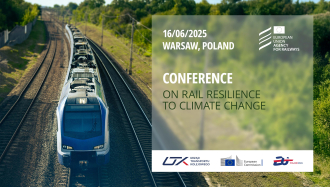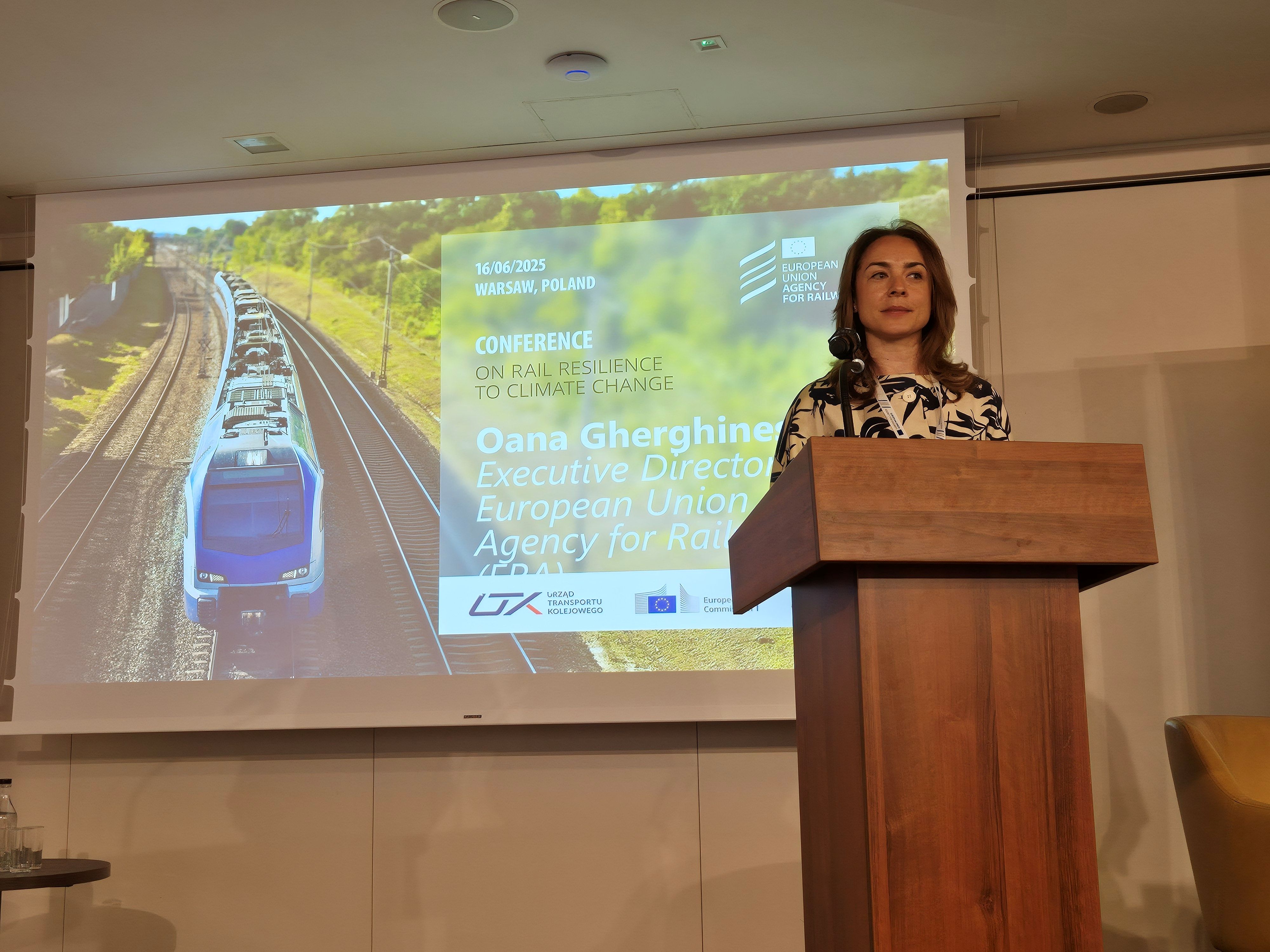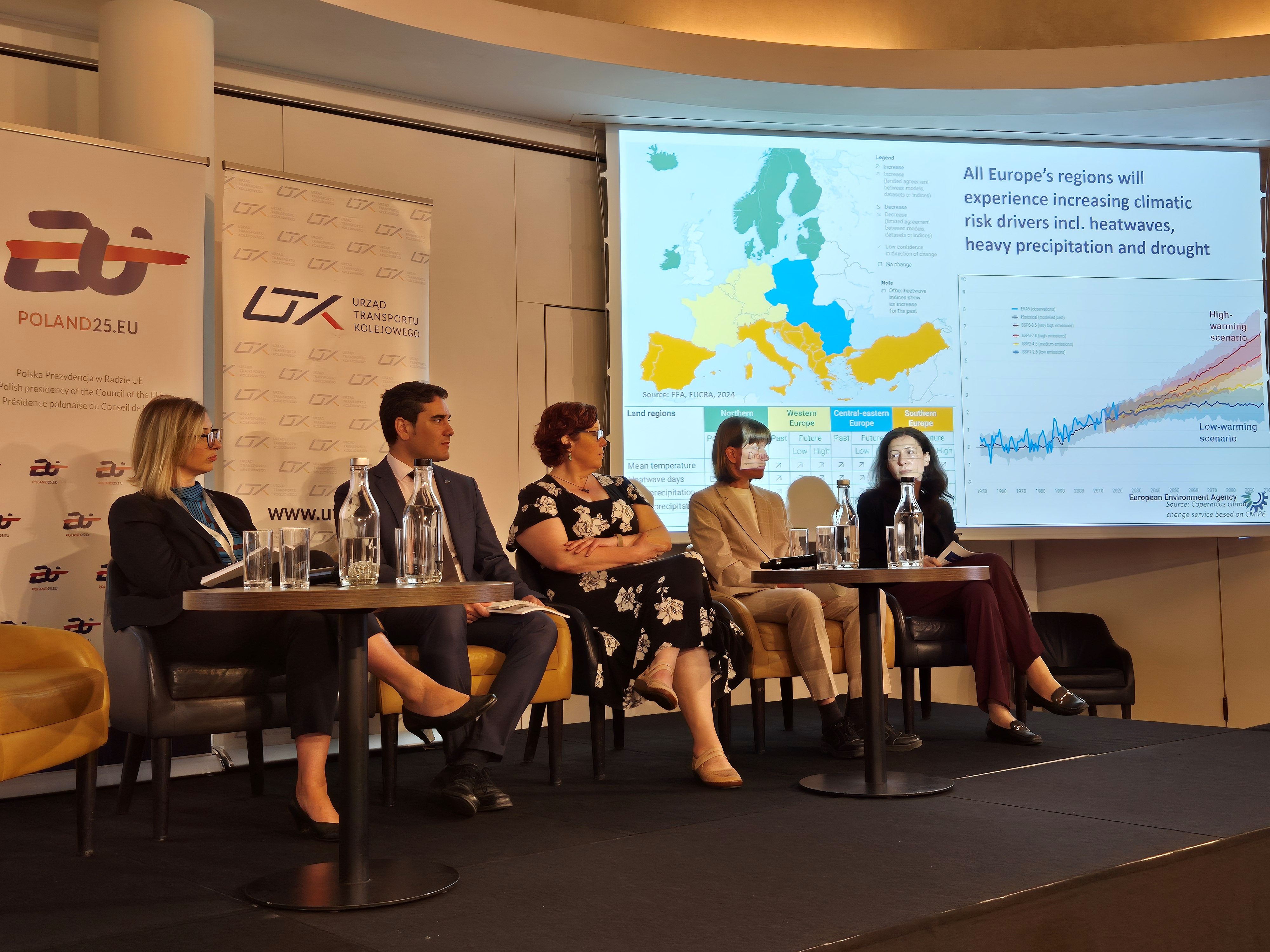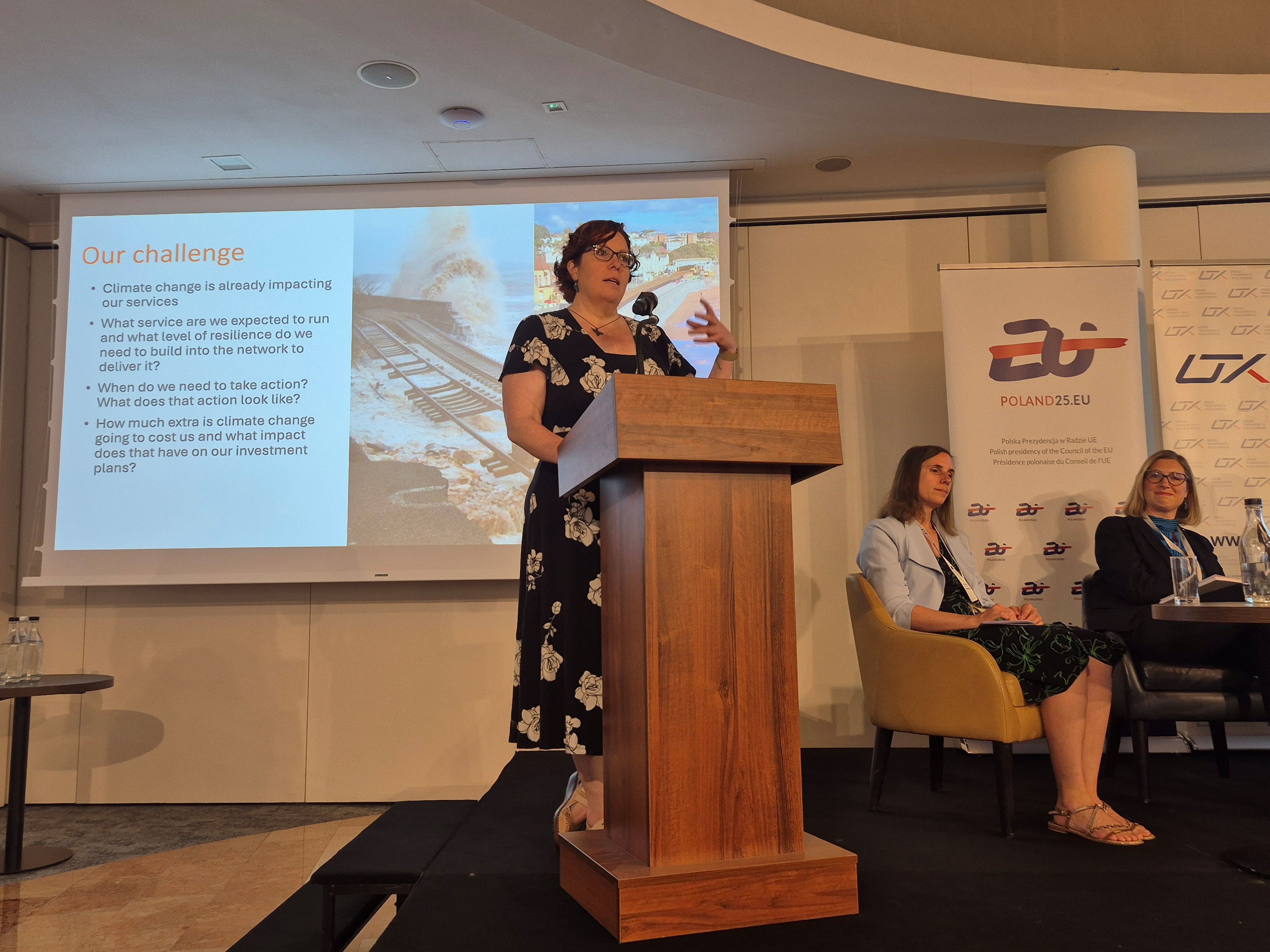Climate change – one of the most important challenges for railways
Extreme weather events such as floods, landslides and strong winds are becoming more frequent. They are a major challenge for railway infrastructure, as well as for railway companies across Europe. On 16 June, a conference on the impact of climate change on the railway system was held in Warsaw. The organizers were the European Union Agency for Railways, the European Commission and the Office of Rail Transport. The conference was one of the events of the Polish Presidency of the Council of the European Union.
"The railways have proven their resistance to various threats many times – not only climate. This makes rail a key element of national security of any country," said Ignacy Góra, PhD, BEng., President of the Office of Rail Transport, during the conference. "In the face of growing climate and geopolitical challenges, European railways must adopt a holistic approach to building resilience that combines advanced technologies with international cooperation and long-term strategic planning. The Polish Presidency of the Council of the European Union is a unique opportunity to strengthen European cooperation in the field of railway adaptation to climate change. We must use the experience from all over the continent," added the President of UTK.
During the conference, experts from different EU Member States and the UK used the opportunity to share their experience – while tackling issues such data reliability and exchange, consensus was that collaboration in and around the EU must be deepened in order climate proof the European rail network. One highlight of the event was the presentation of the preliminary results of the ERA Rail Resilience Study, which was commissioned as part of the European Commission’s strategy to increase rail resilience in the EU. In a panel lead by the Europe’s Rail Joint Undertaking, EU-Rail, different innovative solutions to the problem were discussed, as well as the importance of international and European standardisation.
Preliminary research presented at the conference shows that in Europe every year train delays caused by extreme weather events amount to a loss of 3-7 years. The detailed ERA report on rail resilience will be made public in the first quarter of 2026 after revision of the European Commission. Climate resilience is of key societal importance and will come at high financial costs, so it is important that we get our priorities right on the issue,” said Joachim Lücking, Head of the Railway Interoperability and Safety Unit at the European Commission. “That will require detailed risk assessments, and in that sense, this conference represents the start of a series of multilateral exchanges on this very important topic.” ERA Executive Director Oana Gherghinescu added: “Decision-makers will need a detailed account of the challenges we are facing, and an assessment of the maturity level by which we aim to tackle them – therefore our kind invitation to all experts to join this ‘knowledge community’ that we have started here.”





